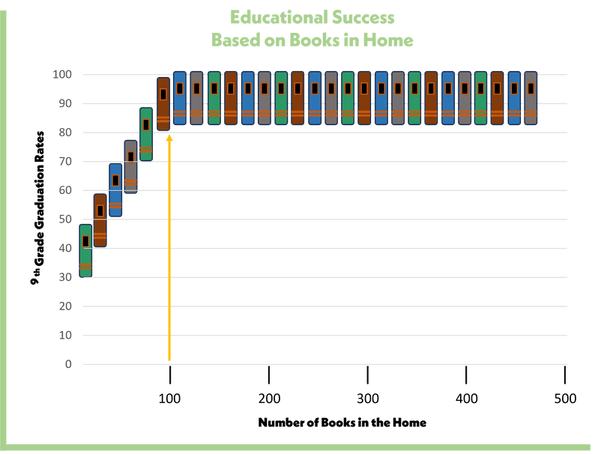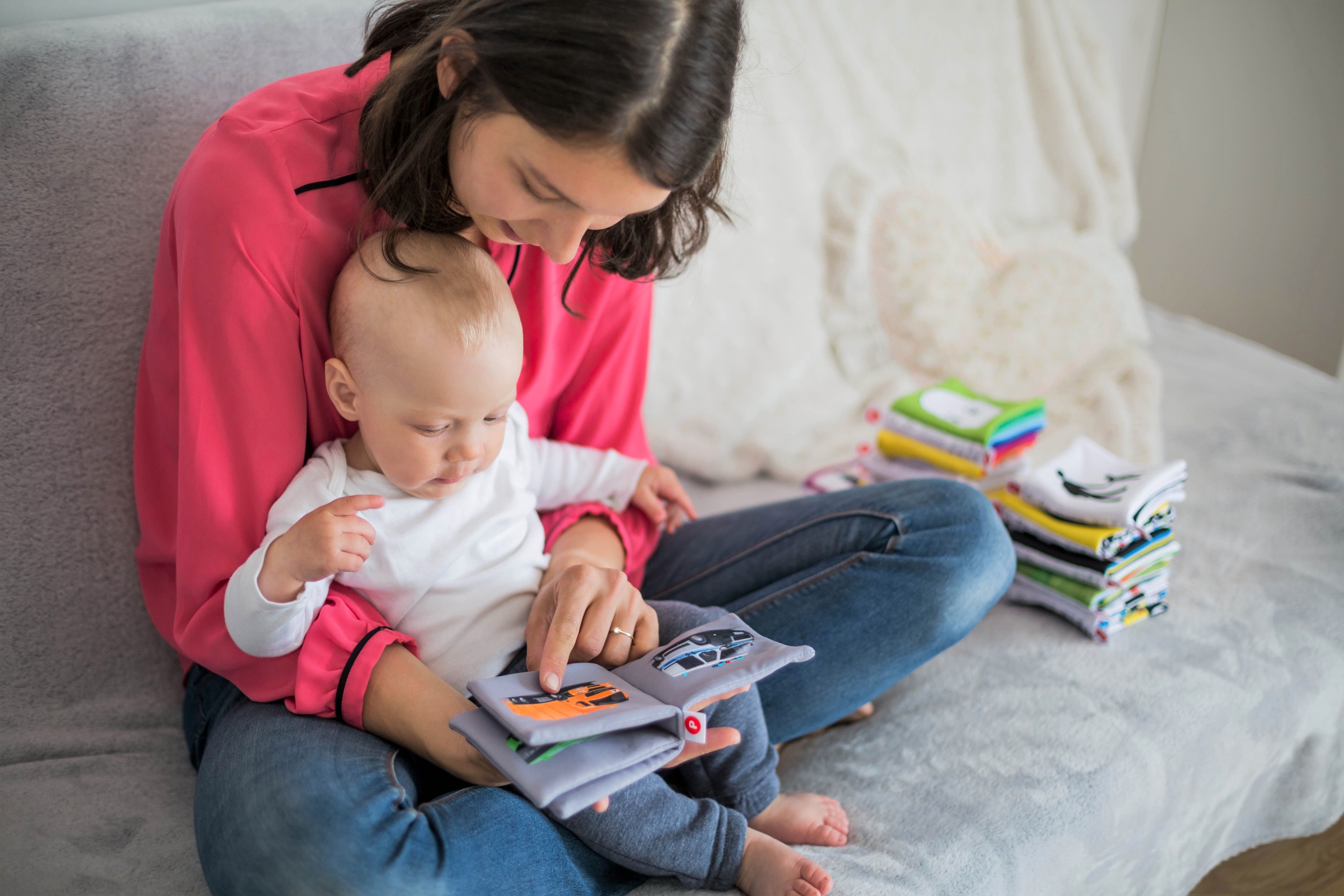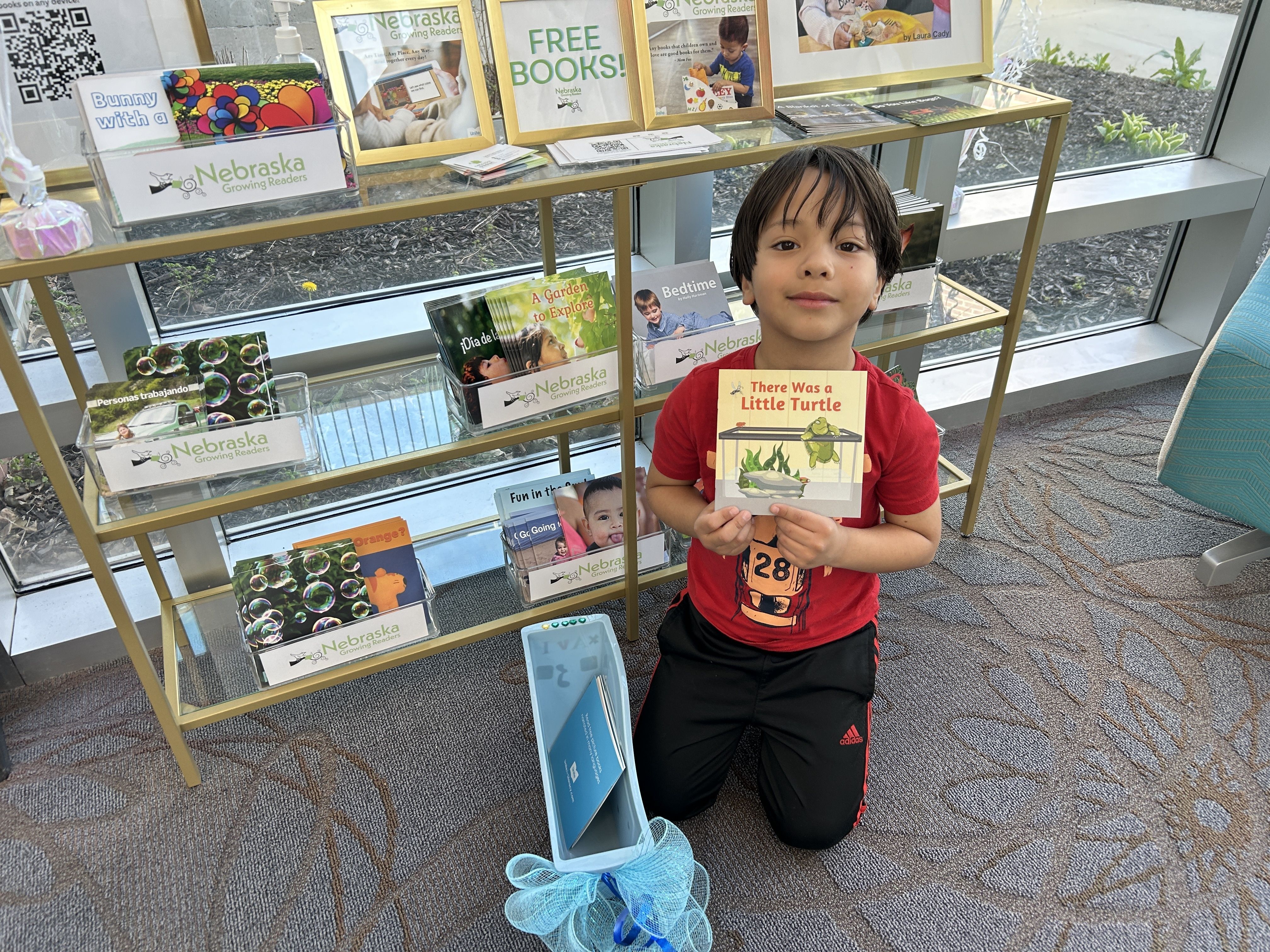Nebraska Growing Readers provides free books to families and promotes the adoption of shared reading as a means of increasing literacy for all children in the state. We believe that access to books for Nebraskans by Nebraskans and that bridge from other languages to English build the connections to reading that will translate to later successes in education and in life.
Access to Free Books
The rationale behind Nebraska Growing Readers is to encourage families to build home libraries of 100 books or more because it has been proven that the more books a home has, the more likely that a child will reach and surpass proficiency levels.
A 20-year study of 27 countries by Dr. Mariah Evans, Professor and Director of Graduate Studies in the University of Nevada, Reno’s Department of Sociology, revealed that the best predictor of graduation rates in all of the countries studied was the number of books in the home, more so than ethnicity, income, or even parental education level.

The study identified an important tipping point at 100 books in the home. Evans concluded that in homes with 100 or more books, children "have a 90% probability of graduating 9th grade compared with a 30% probability for children who come from bookless homes" (Source: Unite for Literacy website)
Adopting Shared Reading Habits
Having books in the home is, of course, only the beginning of a literacy journey. Nebraska Growing Readers promotes the development of daily reading habits and offers tips on how to do so. We work closely with educators and families to create connections between reading habits taught in schools and those that are nurtured in the home.

Researchers at the Marshall University Joan C. Edwards School of Medicine reinforced previous studies when they found that infants who were read at least one book a day, starting at two weeks old, showed higher language scores as early as nine months of age. Setting a daily goal of at least 15 minutes of reading or a number of books a day sets the foundation of reading success.
How We Achieve Our Goals
-
Provider RegistrationsProviders can register for free books to be distributed to the children and families they serve.
-
Incoming kindergarten students can receive up to 100 books for free by mail.
-
NGR partners with local communities to provide free books in selected locations in the area.
-
Find Nebraska-related books, books available in multiple languages, and the full Unite for Literacy collection.





